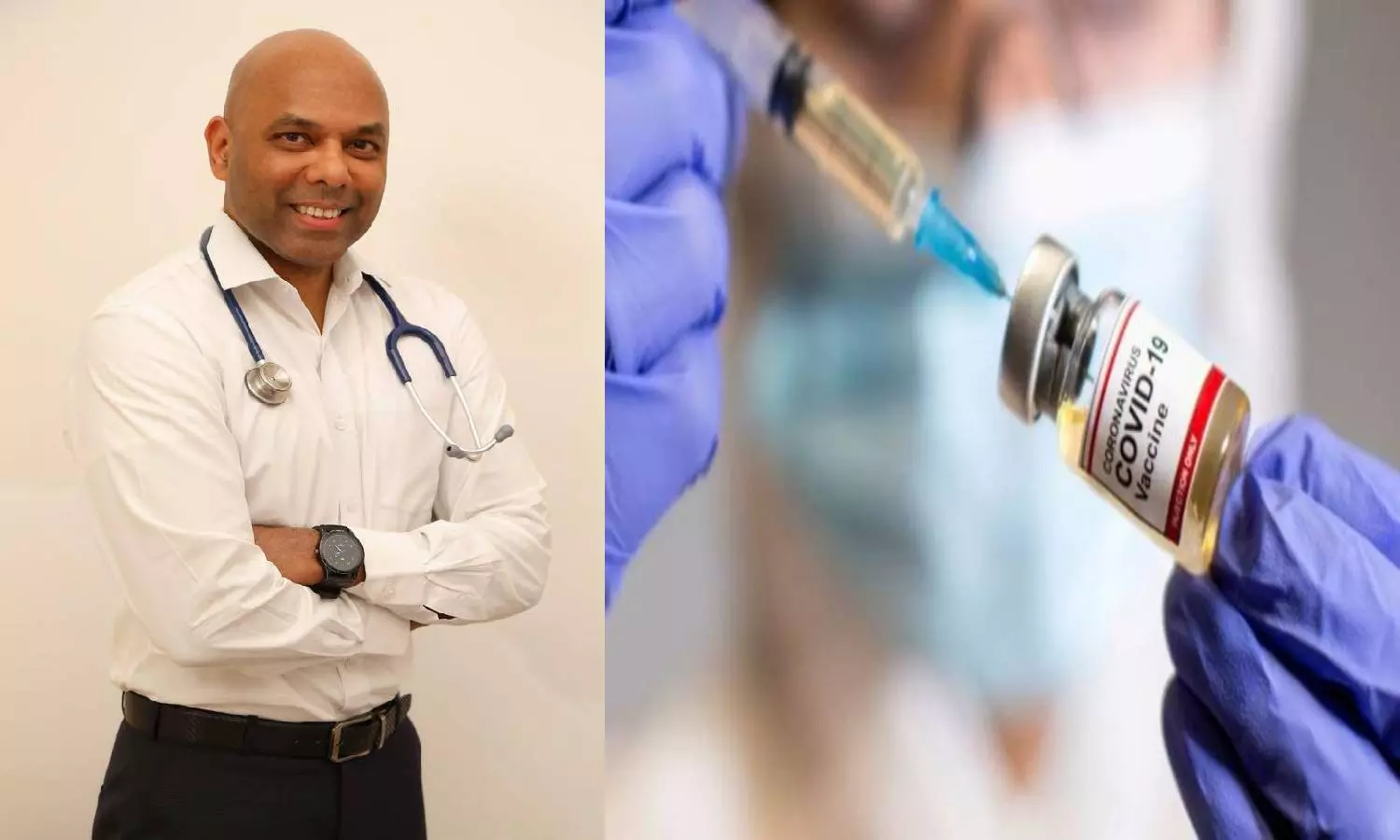COVID 19: Vaccine so near... Yet so far
Prevention, rather than cure, is the holy grail of medicine. With this objective in mind, years of research and lots of money are invested in disease prevention. An effective and safe vaccine is the gold standard for the prevention of infectious diseases.
By Dr Ravi Andrews
Hyderabad: Prevention, rather than cure, is the holy grail of medicine. With this objective in mind, years of research and lots of money are invested in disease prevention. An effective and safe vaccine is the gold standard for the prevention of infectious diseases. On average, it takes seven years to manufacture an appropriate vaccine. The fastest vaccine ever brought to the world market was the mumps vaccine which took four years. Humanity has a dismal record in vaccine production. Ebola vaccine took 6 years, Rotavirus vaccine took 15 years and Chickenpox vaccine took 28 years. Look at HIV, 40 years, and still no vaccine! In the last 25 years, only seven new vaccines of note have been manufactured. Today, scientists are under tremendous pressure to produce a vaccine for COVID-19 as fast as possible. It is like asking a T20 team to score 360 runs in the last ten overs…it is theoretically possible but practically impossible!
COVID- 19 has already affected 64 million people and killed 1.5 million people in less than a year. We have limited time at our disposal to find a vaccine to prevent this twenty-first-century scourge of humankind. The public is so scared and desperate that they are pushing the pharmaceutical industry to move faster and faster. At present, there are more than 100 potential vaccine candidates being evaluated. Some of these are the Russian Sputnik V, Chinese CanSino, and Indo – Oxford / Astra-Zeneca Covishield, American Moderna vaccine and US-German Pfizer- BioNTech vaccine. All are engaged in a mad race to be the first to roll out an effective vaccine.
Initially, the Russian Sputnik V seemed to have won the race when the Ministry of Health of Russia approved it. However, this was done before the Phase 3 clinical trials were completed. This raised concern about its safety as well as efficacy (efficiency). This vaccine is undergoing further studies in India to determine this.
As of today, the UK has approved the Pfizer – BioNTech vaccine as the first vaccine to be used against COVID-19. It has ordered 40 million doses which would cover 20 million people as each person needs two shots of the vaccine, 21 days apart. This sounds like music to our ears but a few words of caution are needed.
This vaccine has been really fast-tracked. Any vaccine needs to undergo three phases of clinical trials before being cleared to go on the market. Phase 1 involves studying the dosage and safety of a small number of healthy volunteers. Usually less than 100 in number. This phase takes 1- 2 months. Phase 2 involves studying the efficacy on a slightly larger number of healthy volunteers. Usually less than 1000 in number. This phase takes 2 -3 months to complete. Phase 3 involves studying the safety and efficacy on a large number of healthy volunteers. Usually more than 3000. This phase takes months to years to complete. Long term complications need to be studied as well as short term ones. The COVID- 19 vaccines don't have the luxury of long term trials.
Though the Pfizer and Moderna vaccines claim the efficacy of more than 95%, safety has not been studied properly. Storage and transport are huge hurdles especially in a country like India. The Pfizer vaccine needs to be stored at below -70 degree Centigrade during transportation. Reaching the vaccine to people is a big challenge.
We do not know the exact dosage of the vaccine to give long term protection and at the same time be side effect free. We do not know how long the protection will last. For example, it would be pointless if the vaccine gives 95 percent protection which lasts just for six months. We are not aware of the safety in pregnant women and young children. We do not know the safety and efficacy in people with other severe diseases like cancer, kidney disease, heart disease, HIV, and post-transplant patients.
Finally, the general public will be the last to get the vaccine. The first doses of the vaccine will be given to health care workers, the elderly, and those with other comorbid illnesses like cancer, dialysis patients, post-transplant patients, etc. So it will be at least six months before you get your first shot of the vaccine. The social distancing, mask, and sanitation mantra will need to continue till then and even after that till everyone is protected.
However, there seems to be light at the end of this particular COVID tunnel. Let us hope the light is not a raging fire that will engulf us all.
Dr Ravi Andrews can be contacted online via apollo 24/7 app.